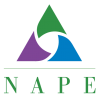Review the Theory and Evidence.
Recommendations and Strategies*
- Conduct interventions for middle school students: NSF’s New Formulas for America’s Workforce 2 Projects provide programming for American girls for whom timing of their future plans can have an ill-timed conjunction with eroding self-efficacy and greater awareness of social messages, about femininity.
- Target elementary and middle school students, especially for math interventions: “Intervention programs should be started early to counteract the belief that ‘mathematics is a matter for boys.”
- Intervene early in youth’s development: Interventions that address occupational factors may be vital to getting students ages 10- 13 more interested in an Information Technology career. This is especially true for math and science. “Interventions need to be designed that focus not on the academic achievement of women but in how to make math-and science-related occupation[s]n more interesting for young high achieving [sic] women.”
“Providing information about nontraditional careers at the ages at that young people are most open to considering a nontraditional career and prior to their excluding essential preparation will increase participation in nontraditional careers.”
Effective Practices and Resources
- Aiming for Algebra brings STEM to the attention of girls and their families. Program findings and outcomes help us understand, for example, how to maintain girls’ interest in science past middle school (National Science Foundation, 2006).
- Sisters in Science‘s year-long program for elementary school girls already interested in science significantly increased science and math achievement test scores.
- Diva Tech Day, which is offered by Minot Public Schools, Minot, North Dakota (a 2005 Programs and Practices That Work Award Winner), is a hands-on, fun-filled nontraditional workshop for girls in grades 8-11. The goal of the workshop is to introduce girls to opportunities in occupations that are traditionally considered to be for men.
- Decisions Without Directions: National Study on Career Guidance and Decision-Making This survey from Ferris State University found parents to be the most influential adults in career decision-making.
